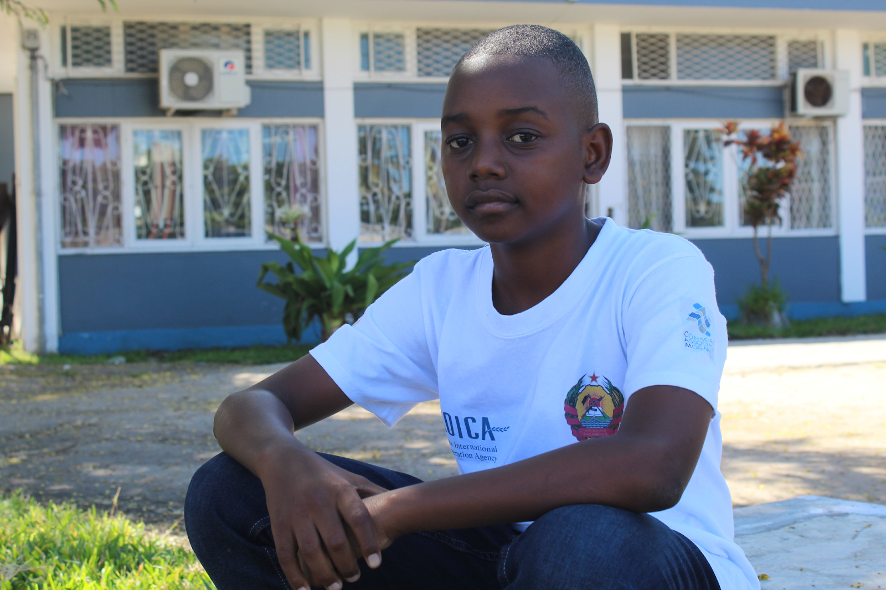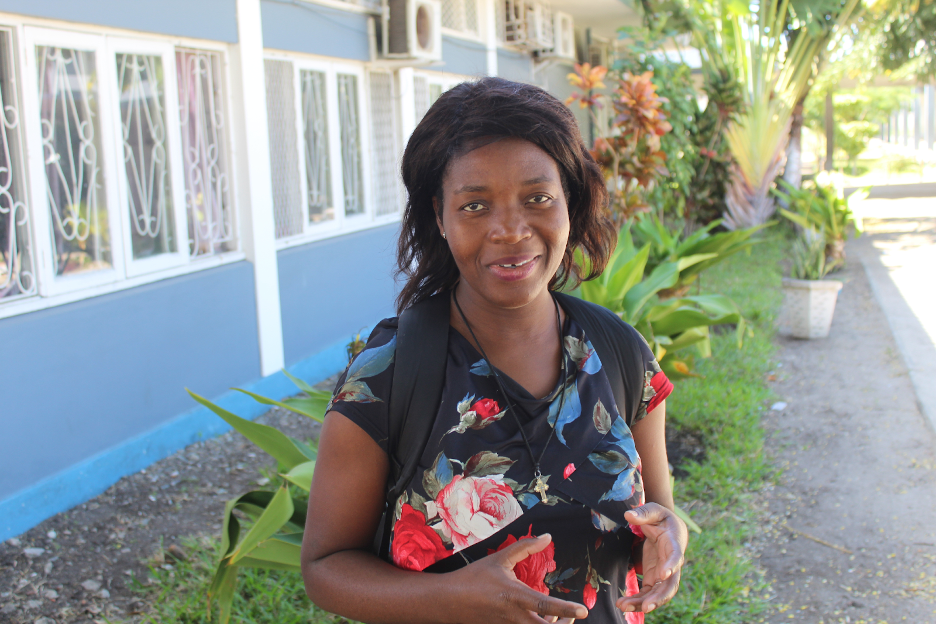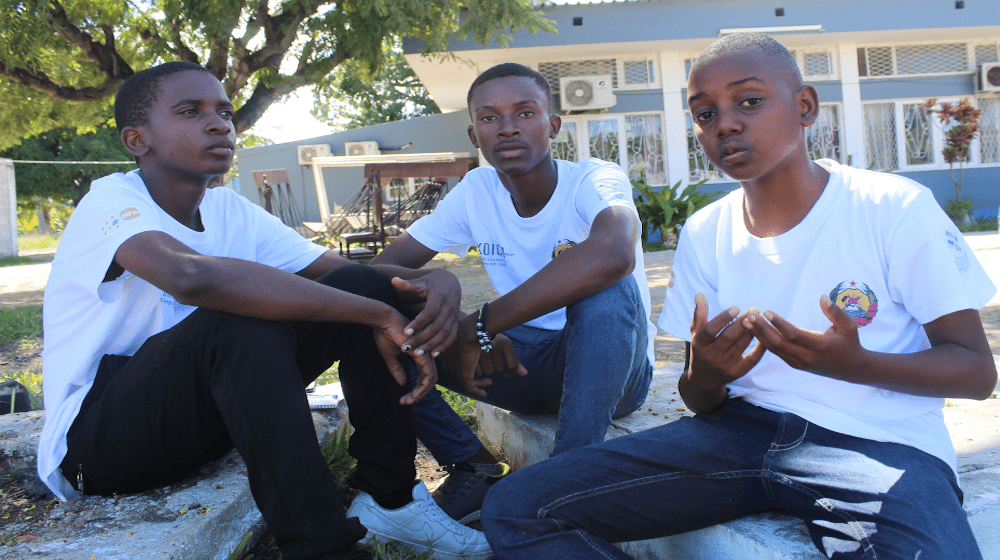Sofala, Mozambique - At least three times a month, different groups of adolescent boys and young men, ages 13 to 20, come together to discuss topics ranging from sexuality, gender, early marriage, and toxic masculinity. Their aim in doing so? To create positive change in their communities. The meetings are normally held on school grounds in Sofala province, helping attract even more youth to attend.
Having his school in Beira, Sofala, serve as an inclusive space, free of gender-based violence (GBV) is one of 14-year-old Cleiton Adriano's dreams. The adolescent is in the 9th grade and leads awareness-raising activities with his peers.

“Spreading positive messages about gender equality and the empowerment of girls has been one of my daily tasks at school,” said Cleiton, as he points out that one of his greatest desires is to “become an agent of positive change in my community”.
In August 2022, Cleiton Adriano was trained on GBV as part of a UNFPA project to improve Reproductive, Maternal and Adolescent Health in Sofala province, with funds from the Korea International Cooperation Agency (KOICA).
Implemented by UNFPA partner, Consorzio Associazioni con il Mozambico (CAM), in 14 schools in the districts of Beira, Dondo, Nhamatanda, and Búzi, the project promotes women's empowerment and contributes to positively changing male behavior, attitudes and practices by involving boys and young men to respond to - and mitigate - GBV in their secondary schools.
“I have engaged a few members to join the boys’ club, and currently, I am proud to see their transformative changes in behavior, actions and mindset,”noted Cleiton.
Since early 2022, a total of 14 boys’ club members were trained as leaders to guide the peer-to-peer discussions with the 84 adolescent boys’ club members that have been recruited. These trainings were conducted with technical support from the Provincial Directorates of Education and of Health.
Two of the members who joined the club are Leonel and Benilton, both grade 10 students. Leonel remembers that he used to bully girls, especially his classmates at school: “After joining the sessions, I realized my misconceptions and now aim to share positive information with both my classmates and community," commented Leonel.
Benilton shared that when he joined the sessions led by his facilitator, Cleiton, he changed his behavior and currently his parents are very proud of him. “The sessions not only changed my life, but thanks to them I identified and helped to report cases of gender-based violence in my community”.
Engaging men and boys to advance gender equality
To date, the boys clubs’ have reached some 434 adolescents and youth, alongside other awareness sessions in the schools and communities. “One of the great gains was to change the mentality of some parents and guardians who believed that their sons’ involvement in activities addressing gender-based violence and sexual and reproductive health would compromise their masculinity,” shared Cremilda Gravata, one of the 14 teachers trained on GBV under the KOICA project and supporting the boys’ club at her secondary school.

"By disseminating messages about preventing and combating gender-based violence and sexual and reproductive health and rights, boys have been creating effective behavioral change within the school,” Cremilda Gravata shares.
"By disseminating messages about preventing and combating gender-based violence and sexual and reproductive health and rights, boys have been creating effective behavioral change within the school,” Cremilda Gravata shares.
Adriano Cerveja, from Sofala's Provincial Directorate of Education, supports the view that boys have played a crucial role in reporting gender-based violence, bullying, and other harmful practices. They have also referred adolescents to youth-friendly health services for family planning and other health-related support, information, and counseling.
Since 2022, the KOICA-funded multi-year project is enabling boys like Cleiton in Sofala province to educate and inspire their peers to challenge stereotypes regarding masculinity and risk-taking behavior and to reinforce their role in advancing women’s rights and gender equality.


